Resume guide for landing the concierge job of your dreams
As a concierge, you can make a hotel guest’s experience go from terrible to wonderful in a matter of minutes. You know nearly everything there is to do in town that weekend as well as where guests can find the best handmade gnocchi in town.
In short, your ability to help others sets you apart, and your job is one of the most important for guest relations in any quality hotel. You tend to know what people want before they even say it; however, you’re probably wondering what hiring managers want to see as you start submitting resumes.
Read on to learn the 4 essential parts to a successful concierge resume.
1. Write an authentic summary that represents your concierge values
The best way to look at your resume summary is as your elevator pitch. We’ve all spent a few precious minutes in the elevator with someone important who we are hoping can help us succeed, and if the time is right, we might even give them a quick rundown of our ideas or history to get what we want.
Your resume summary accomplishes the same thing for hiring managers, giving them a very quick snapshot of why you are the right choice for a concierge position.
To write your summary, start with an adjective you’ve heard used to describe you frequently (make sure it’s positive!), like energetic, friendly or knowledgeable. Next, use your current job title. Finally, wrap it up with your experience. Oh, and make sure these elements are all in the first sentence. So, you might start with something like, “Detailed oriented concierge with 14+ years of experience.” It’s short, sweet and to the point, but it also allows hiring managers to see exactly why you’re the best fit for a job. Finish your summary by talking about your certifications, skills, educational background, etc. in 1-2 more sentences.
Remember, hiring managers have hundreds of resumes they’ll go through, and most won’t read more than the summaries to narrow down the hiring pool. By keeping your resume summary short and to the point, you’re speaking hiring managers’ language, and showing why you’re perfect for their concierge opening.
2. Prioritize your relevant work experience
Experience is important for any job, and that’s especially true for concierges. However, how do you properly discuss your experience? Or, how do you get the job if you have no direct experience as a concierge?
For experienced concierges, you’ll want to work backwards from your last concierge job. When listing these jobs, make sure you provide measurable data. So, for example, if you helped an average of 50 guests a day book tours, include that under here. This helps hiring managers to see exactly why you’re the right choice for the job as well as what you delivered to your last employer. Do not simply write job responsibilities. Hiring managers don’t need to know what you were supposed to do at your last job. Instead, they’ll want to know exactly what you accomplished.
Not experienced or looking for a career change? You can make your work history speak to hiring managers as well. Simply look to make connections between past jobs and your dream concierge position. For example, do you have an extensive background in customer service? Have you regularly helped others? Are you a team leader with strong communication skills? All of these skills are needed in the concierge field, and by playing up your connections and experience in past jobs, you can expect to impress hiring managers with your skillset.
3. List your educational credentials properly
Most concierge positions don’t require a degree in a specific field; however, your degree may push you above other candidates with similar work histories. If you have a degree above an MA, don’t worry about listing your high school. When talking about your educational background, don’t be afraid to list any major accomplishments or achievements, especially if they’re relevant to the position.
For example, many college graduates will list their curriculum and class history to show what skills they learned that can help with their job expectations, including hospitality management, marketing and business.
4. Include relevant skills to round out your concierge resume
Let’s be honest, a concierge has an assortment of skills in their wheelhouse they must use every single day. With such a plethora of different skills, it can be difficult to figure out which 8 - 12 should be included on a resume. This is where the job listing you’re responding to can be helpful.
On it, you’ll see key terms, including "organized", "leader", etc. When crafting your skill section, you’ll want to use some of their key terms to show why you’re the right choice for a job. However, what about the remaining skill section? What will you place there?
Create a skill set chart with your hard and soft skills divided. Soft skills are those internal skills, like time management and communication while hard skills will be tasks completed at your job, like cold calling or organizing appointments and experiences for guests. Now, look at which skills you used the most. Sometimes we’ll find our most primary skills aren’t exactly what the job listing asked for, so by including a mix of the job listing and personal skills, you’ll be able to show how you’re a perfect fit for the job as well as what skills you will bring to the table.
In conclusion...
Becoming a concierge can be an extremely rewarding career; however, in order to land the job, you must prepare a resume hiring managers will actually read. By creating a resume summary, detailed work experience history, highlighting your educational background and creating a concise listing of your skills, you’ll have a resume that people will actually want to read.
Instead of worrying about what to include in your resume, follow our guide to writing the perfect concierge resume and start seeing those job offers come pouring in as soon as you hit send.

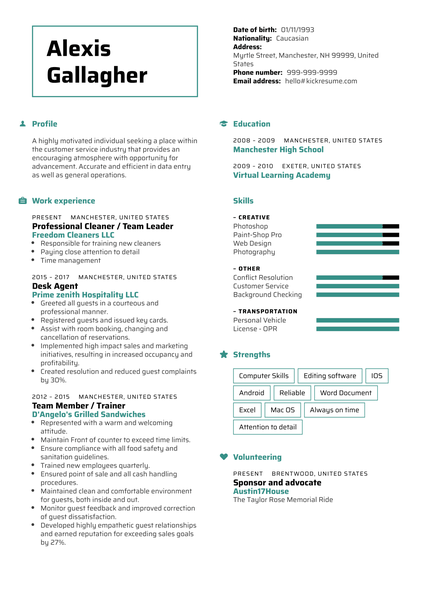

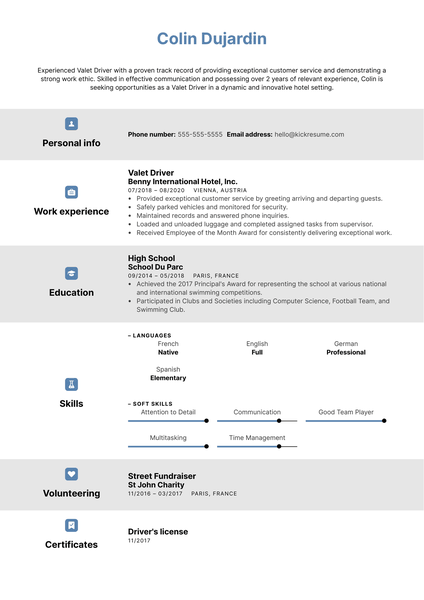
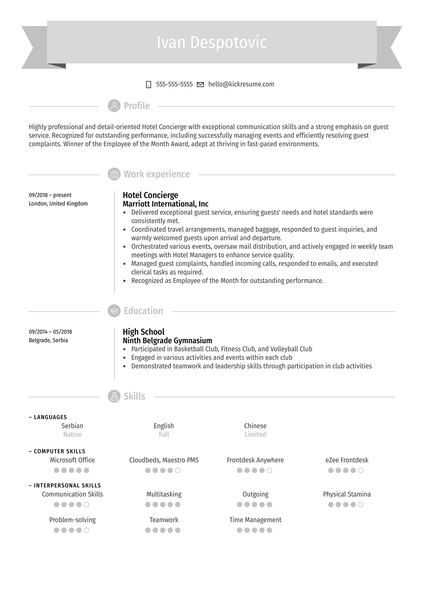

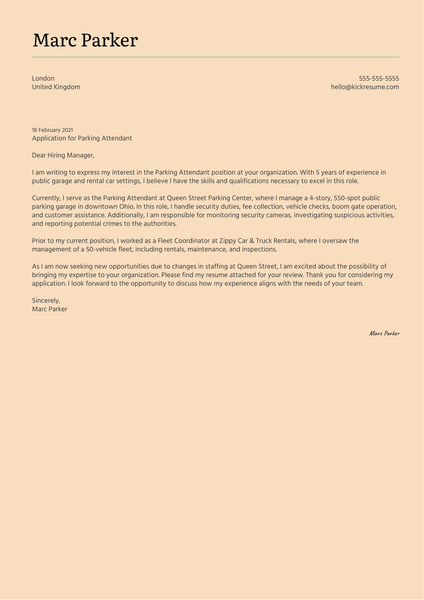
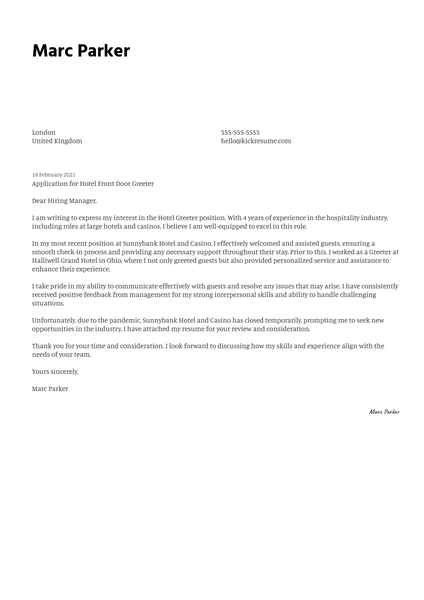
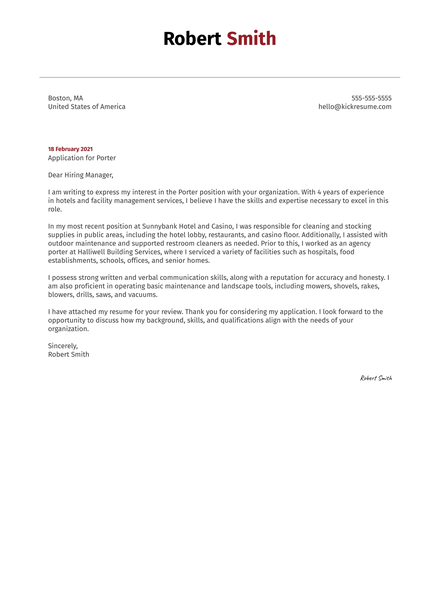
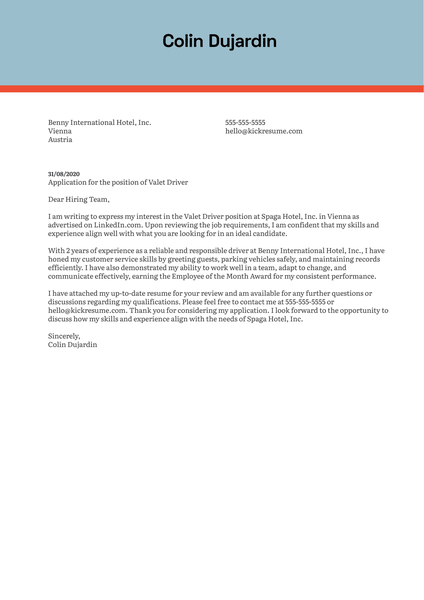
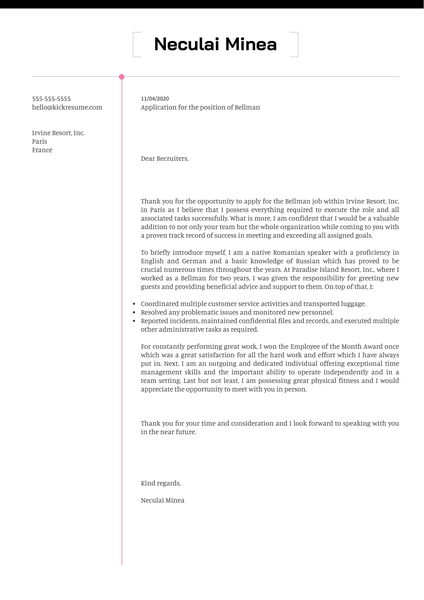
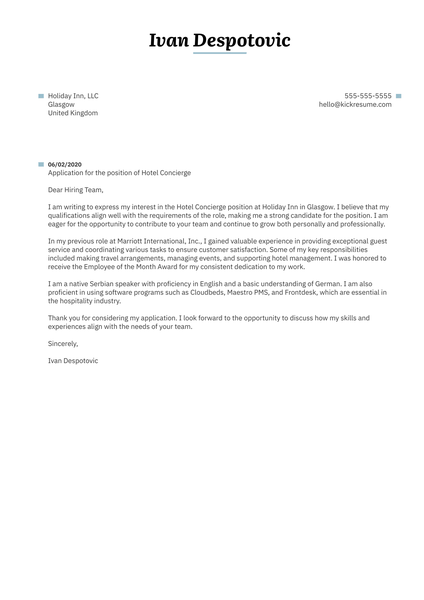
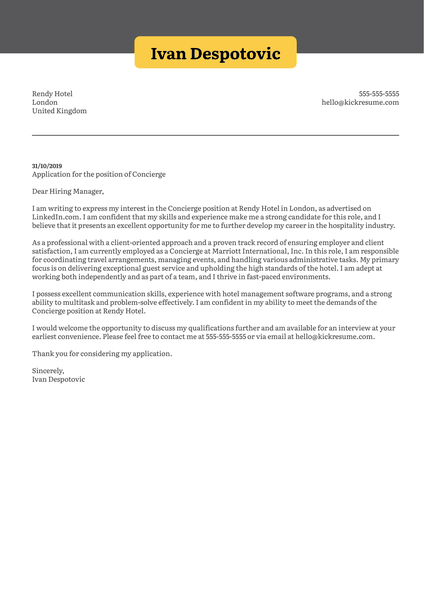
![How to Write a Professional Resume Summary? [+Examples]](https://d2xe0iugdha6pz.cloudfront.net/article-small-images/i-Profile.svg)
![How to Put Your Education on a Resume? [+Examples]](https://d2xe0iugdha6pz.cloudfront.net/article-small-images/i-Collage-Universities.svg)
![How to Describe Your Work Experience on a Resume? [+Examples]](https://d2xe0iugdha6pz.cloudfront.net/article-small-images/Experience.svg)


